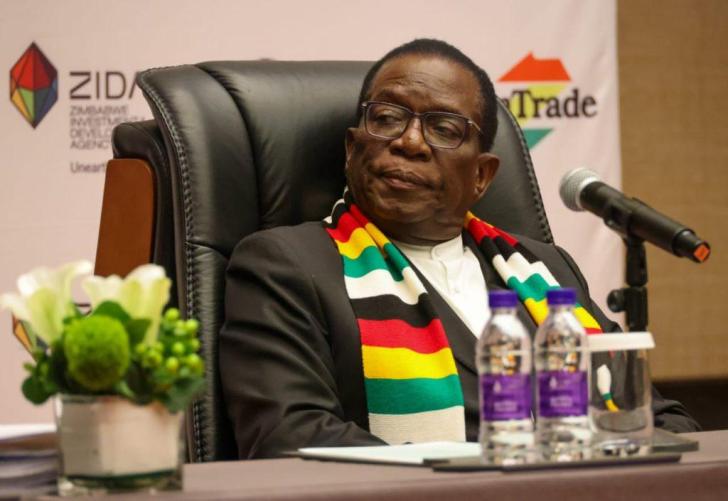News / National
Mnangagwa courts security forces' favour
31 Dec 2024 at 13:56hrs |
0 Views

President Emmerson Mnangagwa has made significant changes to the conditions of service for police and prison officers, including increasing the mandatory service period from 20 to 30 years. The alterations were announced yesterday through Statutory Instrument (SI) 201 of 2024 under the Presidential Powers (Temporary Measures) (General Laws Amendment) Regulations, 2024.
The new regulations stipulate that police officers, whose pensionable service reaches 30 years or more, may be required to retire by the Commissioner, with a 12-month notice. However, the retirement age remains at 60, and officers may extend their service for an additional five years if the Commissioner-General deems it appropriate. Under these new rules, officers can serve up to 70 years of age.
The SI further outlines that if the Commissioner considers it in the public interest, an officer who is medically fit can continue serving until the age of 65, with a notice period of 12 months. This extended service can be shortened if the Commissioner requires earlier retirement, giving officers an option to retire voluntarily with a shorter notice.
Regarding prison officers, the regulations introduce similar terms, allowing them to retire with gratuity after 10 years of service or upon pension after 30 years. They may also be asked to retire after reaching the 30-year mark, but can choose to retire earlier with a three-month notice.
Like their counterparts in the police force, prison officers may also extend their service beyond the usual retirement age. The Commissioner-General has the authority to grant permission for a further five years of service, extending it until the officer's 65th birthday.
The new regulations come amid concerns over the welfare of security personnel, especially considering their instrumental role in the 2017 coup that led to Mnangagwa's rise to power. While the government has faced criticism for neglecting their welfare, the changes to service conditions are seen as an attempt to address some of the concerns raised by the police and prison officers.
Despite these measures, Mnangagwa's administration has faced criticism over its treatment of security forces, with loyalists pushing for the removal of presidential term limits to allow the 82-year-old leader to extend his tenure beyond 2028.
The new regulations stipulate that police officers, whose pensionable service reaches 30 years or more, may be required to retire by the Commissioner, with a 12-month notice. However, the retirement age remains at 60, and officers may extend their service for an additional five years if the Commissioner-General deems it appropriate. Under these new rules, officers can serve up to 70 years of age.
The SI further outlines that if the Commissioner considers it in the public interest, an officer who is medically fit can continue serving until the age of 65, with a notice period of 12 months. This extended service can be shortened if the Commissioner requires earlier retirement, giving officers an option to retire voluntarily with a shorter notice.
Like their counterparts in the police force, prison officers may also extend their service beyond the usual retirement age. The Commissioner-General has the authority to grant permission for a further five years of service, extending it until the officer's 65th birthday.
The new regulations come amid concerns over the welfare of security personnel, especially considering their instrumental role in the 2017 coup that led to Mnangagwa's rise to power. While the government has faced criticism for neglecting their welfare, the changes to service conditions are seen as an attempt to address some of the concerns raised by the police and prison officers.
Despite these measures, Mnangagwa's administration has faced criticism over its treatment of security forces, with loyalists pushing for the removal of presidential term limits to allow the 82-year-old leader to extend his tenure beyond 2028.
Source - newsday
Join the discussion
Loading comments…





































